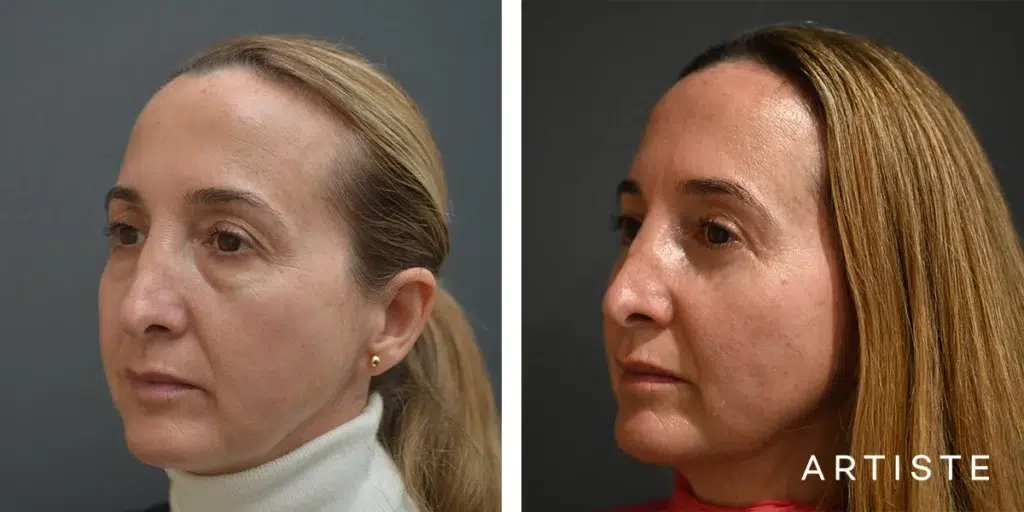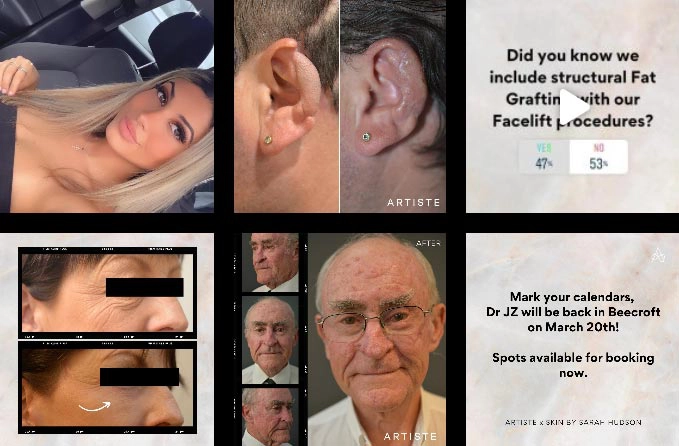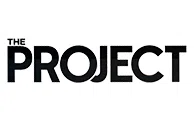Managing Discomfort After Eyelid Surgery
Model featured in photography

Undergoing eyelid surgery, also known as blepharoplasty, can be a life-changing experience, improving the appearance in your area and your vision. However, like any surgical procedure, it often involves a period of discomfort during the recovery process. In this blog, Artiste Plastic Surgery will explore effective strategies and tips for managing discomfort after eyelid surgery.
Understanding Discomfort After Eyelid Surgery
Firstly, it’s essential to acknowledge that discomfort is a common aspect of the recovery process following eyelid surgery. Swelling, bruising, tightness, and mild pain are typical symptoms experienced by many patients. However, with proper care and attention, these symptoms can be effectively managed, facilitating a smoother recovery journey.
Tips for Managing Discomfort
- Follow Your Surgeon’s Instructions: Your surgeon will provide detailed post-operative instructions tailored to your specific needs. Adhering to these guidelines is crucial for promoting healing and minimising discomfort. This may include taking prescribed medications, applying cold compresses, and avoiding certain activities that could strain the eyes.
- Use Cold Compresses: Applying cold compresses or ice packs to the eyes can help reduce swelling and alleviate discomfort. Wrap the ice pack in a soft cloth and gently apply it to the eyelids for short intervals, being careful not to apply excessive pressure.
- Keep Your Head Elevated: Elevating your head while resting can help minimise swelling and promote proper drainage of fluid from the surgical site. Use extra pillows to prop yourself up while sleeping or reclining, ensuring your head remains comfortably elevated.
- Stay Hydrated: Drinking an adequate amount of water is essential for promoting healing and reducing discomfort. Hydration supports the body’s natural healing processes and helps flush out toxins, contributing to a smoother recovery.
- Avoid Strenuous Activities: Refrain from engaging in strenuous activities, heavy lifting, or vigorous exercise during the initial stages of recovery. These activities can increase blood flow to the surgical site and exacerbate swelling and discomfort.
- Protect Your Eyes: During the recovery period, it’s essential to protect your eyes from irritants and excessive sunlight. Wear sunglasses outdoors and avoid exposure to smoke, dust, and other potential irritants that could compromise healing.
- Practice Gentle Cleansing: Follow your surgeon’s recommendations for cleansing the eyelids to keep the area clean and prevent infection. Use a mild, non-irritating cleanser and avoid rubbing or scrubbing the eyes vigorously.
- Maintain a Healthy Diet: Consuming a nutritious diet rich in vitamins, minerals, and antioxidants can support the healing process and reduce inflammation. Incorporate plenty of fruits, vegetables, lean proteins, and whole grains into your meals to nourish your body from within.
While discomfort is an inevitable aspect of the recovery journey after eyelid surgery, it is temporary and manageable with the right approach. Remember to be patient with yourself and allow your body the time it needs to heal fully.
If you want to learn more about blepharoplasty surgery in Sydney, including its recovery process, reach out to Artiste Plastic Surgery. Our Specialist Plastic Surgeon, Dr Jack Zoumaras will give you detailed pre and post operative instructions and will discuss what to expect about the procedure. Book a consultation today.
Disclaimer: At Artiste Plastic Surgery, our Plastic Surgeons led by Dr Jack Zoumaras have been trained to the highest possible degree. All surgery has risks and it is always advised to get a second opinion. Risks are very real and we cannot guarantee any result. Results are illustrated as a guide only. All risks are managed and any need for revision surgery or complications (1-5%) can be managed by our specialist plastic surgeons.
Any statements on how you will feel is based on Level V Evidence:
Level V: How you will feel after plastic surgery varies between individuals, depending on psychological and physical factors. Our internal research is based on how patients in our practice feel after surgery.
The blogs are not a substitute for a medical consultation and do not form as part of the doctor to patient relationship.
SHARE THIS ARTICLE
Apr18
6 Key Factors to Consider When Choosing A Surgeon for Eyelid Surgery
Eyelid surgery or blepharoplasty might just be the thing to help you feel more refreshed and confident about your appearance. But with so many surgeons available, how do you find ...
READ MORE
Apr18
Why is Double Eyelid Surgery Popular?
The impact of Western beauty standards has become so far-reaching that double eyelids have become a desirable feature among Asians. The first recorded procedure of a double eyelid surgery being ...
READ MORE
ABOUT ARTISTE
Artiste Plastic Surgery is an Award Winning Specialist Plastic Surgery practice led by internationally trained Dr. Jack Zoumaras, Plastic Surgeon and Peer Reviewed Face Surgeon
Artiste offers the latest Cosmetic Surgical Procedures of the Face, Breast and Body, inspired from leading centres around the world.
STAY IN THE LOOP
Enter your email address below to receive updates on new articles and VIP access to promotions and special offers.
FOLLOW US ON INSTAGRAM







